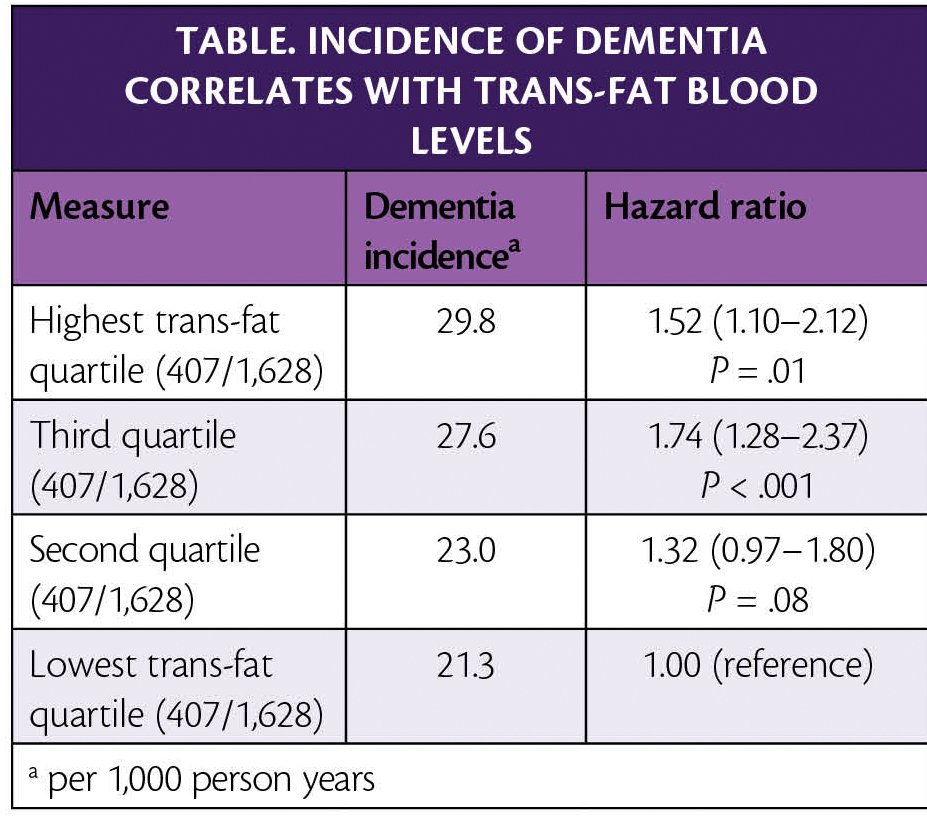High Levels of Trans Fatty Acids Increase Risk of Dementia
People who have more trans fats in their blood may be more likely to develop dementia years later, according to a study published in the October 23, 2019, online issue of Neurology.
After adjusting for other factors that could affect the risk of dementia, such as high blood pressure, diabetes, and smoking, those with elevated trans-fats levels were (2nd to 4th quartiles) 32% to 74% more likely to develop dementia compared with those with the lowest levels of trans fats (Table).

Foods that contributed the most to high levels of trans fats in the blood were sweet pastries, which were the strongest contributor, followed by margarine, candies, caramels, croissants, non-dairy creamers, ice cream, and rice crackers.
“These results give us even more reason to avoid trans fats,” said study author Toshiharu Ninomiya, MD, PhD, of Kyushu University in Fukuoka, Japan. “In the United States, the small amounts still allowed in foods can really add up if people eat multiple servings of these foods, and trans fats are still allowed in many other countries.”
“The World Health Organization has called for trans fats to be eliminated worldwide by 2023,” Ninomiya said. “These public health efforts have the potential to help prevent dementia cases around the world, not to mention the decrease in heart disease and other conditions related to trans fats.”
The study enrolled 1,628 people living in a Japanese community, average age 70, who did not have dementia. At the beginning of the study, the participants measured their trans-fat levels in the participants’ blood with the amount of elaidic acid. Participants were divided into 4 groups and given a questionnaire about how often they ate certain foods.
